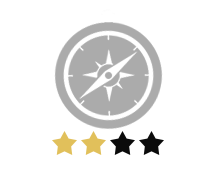cobain wrote:
YALLLLL i need serious feedback on my assignment i need to turn in (it's over 2 weeks overdue heh)
so it's about the hotel and tourism industry so a bit fucking specific sorry but i'm thinking if u have some customer service experience or knowledge in general u might b able to give some feedback anyways. and just.... common knowledge and whatnot too. ANYTHING IS APPRECIATED im so tired of this assignment
Explain added value in terms of travelling and give examples on added value for a trip, an "outing" and for an amusement park
Added value is when, as it sounds, you get added value on a product or service. This is something companies use to compete with other companies that offer the same product/services, by adding something extra to give customers a reason to pick them and not the competing companies.
Examples for a trip can be that you get an upgraded hotel room, for an outing that it includes food/a meal, and for an amusement park that you get access to arcade games or likewise that normally isn't included in the entry/ride passes.
Make a SWOT-analysis of your hometown (swot = strength, weakness, opportunity, threat)
S - close to both nature and the "city center", always close to water because of the river that goes through the entire town
W - lacking tourist information, no specific events or happenings that are special for this town only
O - make use of the wooded areas/nature as well as the city areas, create specific events that would be special for us and put us on the map
T - just a "regular", we are one of a hundred equal towns, nothing here to attracts tourists. We are also a uni town which leads to lots of partying and mess surrounding the student life
Suggest 2 destinations for each type of tourist, and are there destinations that suit more than one type of tourist?
Wilderness tourist - Canada, Switzerland. Lots of opportunities for wilderness activities like climbing and hiking in well kept nature.
Network tourist - New York, London. Big tourist destinations where it is easy to blend in.
Emigrant tourist - Monaco, Dubai. Taxes and environment.
Sightseeing tourist - Rome, Berlin. Destinations with lots to see and experience.
Knowledge seeker - Greece, Egypt. Countires with long and interesting history with lots to learn.
Sun and snow lover - Austria, Thailand. Winter and summer activities.
Activity tourist - Australia, Norway. Different physical activities that suit the tourists needs.
"Mushroom" tourist - Sweden, Canada. Mushroom, berries, fishing and hunting opportunities.
Life enjoyer - France, Italy. Wine, champagne and the classic Italian cuisine.
Medical tourist - Turkey, South Korea. Specifically Turkey seems to be a popular destination for young people wanting to fix their teeth.
Many of these tourists have the same or similar needs, for example the wilderness tourist and the mushroom tourist, so their destinations can work for both categories. Big tourist destinations, like France or New York, offer lots of different activities and tourist attractions which would suit many of the tourists. They cater to a "broader audience".
Explain the P's of the industry and why they're important
Product - companies need to offer an attractive service or product to gather customers, and to compete with other companies that offer similar services/products.
Price - they need to regulate their prices after the customers economic abilities, as well as the company's own economic situation/ability and the prices of competing companies.
Place - where the service/product is marketed and offered.
Impact - inform, attract, stimulate and remind customers of service/product
(last one starts with P in swedish lol)
What significance does a trademark have when you buy a trip?
For example, hotel chains have their own trademarks, something that is specific for their hotels. Let's say I enjoy the Scandic hotel chain (their view on and their work for environmental sustainability, their food quality and restaurants, their interior design), I know what to expect and more or less what I will get no matter which Scandic hotel I pick. Since they have a trademark, all of their hotels follow a certain pattern and have more or less the same execution in all of their hotels.
What is an experience company?
As it sounds, it's a company that offers experiences. Everything from skydiving to wine tastings.
YALLLLL i need serious feedback on my assignment i need to turn in (it's over 2 weeks overdue heh)
so it's about the hotel and tourism industry so a bit fucking specific sorry but i'm thinking if u have some customer service experience or knowledge in general u might b able to give some feedback anyways. and just.... common knowledge and whatnot too. ANYTHING IS APPRECIATED im so tired of this assignment

Explain added value in terms of travelling and give examples on added value for a trip, an "outing" and for an amusement park
Added value is when, as it sounds, you get added value on a product or service. This is something companies use to compete with other companies that offer the same product/services, by adding something extra to give customers a reason to pick them and not the competing companies.
Examples for a trip can be that you get an upgraded hotel room, for an outing that it includes food/a meal, and for an amusement park that you get access to arcade games or likewise that normally isn't included in the entry/ride passes.
Make a SWOT-analysis of your hometown (swot = strength, weakness, opportunity, threat)
S - close to both nature and the "city center", always close to water because of the river that goes through the entire town
W - lacking tourist information, no specific events or happenings that are special for this town only
O - make use of the wooded areas/nature as well as the city areas, create specific events that would be special for us and put us on the map
T - just a "regular", we are one of a hundred equal towns, nothing here to attracts tourists. We are also a uni town which leads to lots of partying and mess surrounding the student life
Suggest 2 destinations for each type of tourist, and are there destinations that suit more than one type of tourist?
Wilderness tourist - Canada, Switzerland. Lots of opportunities for wilderness activities like climbing and hiking in well kept nature.
Network tourist - New York, London. Big tourist destinations where it is easy to blend in.
Emigrant tourist - Monaco, Dubai. Taxes and environment.
Sightseeing tourist - Rome, Berlin. Destinations with lots to see and experience.
Knowledge seeker - Greece, Egypt. Countires with long and interesting history with lots to learn.
Sun and snow lover - Austria, Thailand. Winter and summer activities.
Activity tourist - Australia, Norway. Different physical activities that suit the tourists needs.
"Mushroom" tourist - Sweden, Canada. Mushroom, berries, fishing and hunting opportunities.
Life enjoyer - France, Italy. Wine, champagne and the classic Italian cuisine.
Medical tourist - Turkey, South Korea. Specifically Turkey seems to be a popular destination for young people wanting to fix their teeth.
Many of these tourists have the same or similar needs, for example the wilderness tourist and the mushroom tourist, so their destinations can work for both categories. Big tourist destinations, like France or New York, offer lots of different activities and tourist attractions which would suit many of the tourists. They cater to a "broader audience".
Explain the P's of the industry and why they're important
Product - companies need to offer an attractive service or product to gather customers, and to compete with other companies that offer similar services/products.
Price - they need to regulate their prices after the customers economic abilities, as well as the company's own economic situation/ability and the prices of competing companies.
Place - where the service/product is marketed and offered.
Impact - inform, attract, stimulate and remind customers of service/product
(last one starts with P in swedish lol)
What significance does a trademark have when you buy a trip?
For example, hotel chains have their own trademarks, something that is specific for their hotels. Let's say I enjoy the Scandic hotel chain (their view on and their work for environmental sustainability, their food quality and restaurants, their interior design), I know what to expect and more or less what I will get no matter which Scandic hotel I pick. Since they have a trademark, all of their hotels follow a certain pattern and have more or less the same execution in all of their hotels.
What is an experience company?
As it sounds, it's a company that offers experiences. Everything from skydiving to wine tastings.



 0
0 0
0 0
0 0
0 To join the forums you need to be logged in.
To join the forums you need to be logged in.














 19
19